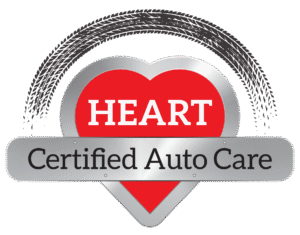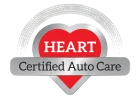Routine oil change servicing is critical to keeping a vehicle on the road for as long as possible. Because buying a car is a large investment, scheduling frequent oil changes may help you get the most out of it.
Instead of obtaining a quick and inexpensive oil change, take advantage of HEART Certified Auto Care oil change offers excellent service that is also economical. We can develop a history for your auto maintenance and repairs, including oil changes, once you’ve joined HEART Certified Auto Care.
The following are the most crucial things to know about a car oil changing routine.
Clean Oil and Oil Filter Functions
What is the significance of frequent oil changes? What occurs in the engine?
Clean oil and filter:
- Lubricates all of your car’s moving components beneath the hood.
- Cools moving engine parts while they do their functions.
- Removes dirt particles that might cause engine rust.
- Increases gas mileage
- Increases vehicle longevity
Because your automobile will survive longer, you will save money in the long term.
Oil Change Schedule
Everyone has heard that oil changes are required every three months or 3,000 miles, whichever comes first. But it’s not quite so clear today. It’s an excellent rule to follow if you don’t know the history of your car or want to be sure you’re changing your oil as needed. However, today’s automobile engines and the oils used to service them may allow you to go longer between oil changes.
Today’s synthetic oils last longer than regular oils. Because newer engines are more efficient than older engines, you may need to visit HEART Certified Auto Care less regularly for this service. If you’re not sure, consult your owner’s handbook and consult with one of our oil change professionals for advice.
Driving Severe vs. Normal
Check your owner’s handbook for references to “severe” driving. But what precisely is it?
Severe driving entails:
- Driving on sandy or dirt roads
- Towing, large vehicle loading, or employing a car-top carrier are all options.
- Short journeys in temperatures below freezing on a regular basis
- Idling excessively and/or traveling at a low speed for an extended period of time
- Stop-and-go traffic in hot weather
- Low-speed (less than 50 mph) long-distance driving
If this reflects your typical driving scenario, you may require more frequent oil changes. Allow our HEART Certified Auto Care oil change professionals to be your local experts.
Conventional Oil vs Synthetic Oil
The debate between synthetic oil and conventional oil is one that has been going on for many years, with both sides having their pros and cons. So, what is the difference between the two?
Synthetic oil is made through a chemical process, while conventional oil is extracted from crude oil. Synthetic oil typically contains more additives than conventional oil, which can improve its performance in certain areas. For example, synthetic oil is better at resisting high temperatures and breaking down less under extreme conditions.
However, synthetic oil also tends to be more expensive than conventional oil. And while it may provide some benefits, there’s no guarantee that it will outperform conventional oil in every situation. Ultimately, it’s up to each driver to decide which type of oil is best for their needs.
Visit HEART Certified Auto Care For Your Oil Change Needs
Our devoted team of professionals at HEART Certified Auto Care is here to assist you in making the best selections for your car. Based on these top oil change must-knows, we look forward to addressing your questions and giving recommendations!





